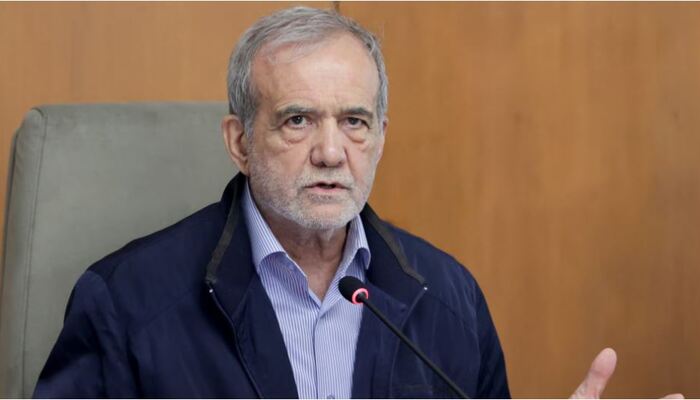Iranian President Masoud Pezeshkian has claimed that Israel tried to assassinate him. He said the attempt involved an airstrike on a location where he was holding a meeting. In an interview with U.S. media personality Tucker Carlson, Pezeshkian stated, “They did try, yes. They acted accordingly, but they failed.”
The interview was conducted through an interpreter and aired on Monday. It is one of Pezeshkian’s first major conversations with Western media since last month’s 12-day war between Iran and Israel.
Pezeshkian said the strike targeted his meeting but failed to harm him. He also said the United States was not involved. “It was not the United States that was behind the attempt on my life. It was Israel,” he told Carlson. However, he did not say whether the attack happened during the recent war.
This allegation has raised tensions between Iran and Israel even further. A direct attempt to kill a sitting president would mark a serious escalation. It goes beyond typical military strikes or covert operations.
Targeting Iran’s Political Core, Not Just Nuclear Sites
If true, this alleged attempt shows a shift in Israel’s strategy. It would suggest Israel is now targeting Iran’s top political leaders—not just its military or nuclear program.
During the 12-day war, Israel said it had killed over 30 senior Iranian security officials. It also claimed to eliminate 11 nuclear scientists. These moves, Israel stated, were meant to damage Iran’s nuclear capabilities.
In addition, Israel and the United States reportedly destroyed three key Iranian nuclear sites.
‘Blood Everywhere, Bodies Torn Apart’: Survivors Recount Horror of Israeli Strike on Gaza Clinic
But targeting the president himself would mark a dramatic shift in strategy, indicating a broader aim to destabilize Iran’s political leadership. While former U.S. President Donald Trump has publicly acknowledged blocking an Israeli attempt to assassinate Iran’s Supreme Leader Ayatollah Ali Khamenei, Pezeshkian’s claim adds a second high-profile target to Israel’s alleged hit list.
Trump had advocated for regime change in Iran during the conflict but appeared to soften his stance as the war progressed. Since then, he has hinted at supporting a long-term agreement with Iran, though details on what such a deal would include remain unclear.
Iran’s Leaders Remain Defiant and Visible
Despite ongoing threats, Pezeshkian and Foreign Minister Abbas Araghchi have continued to appear in public. Pezeshkian recently attended a regional summit in Azerbaijan, while Araghchi has made official visits to Brazil, Egypt, and Russia. Their public visibility stands in contrast to the earlier disappearance of Ayatollah Khamenei, who remained hidden for nearly three weeks following the outbreak of the war. The Supreme Leader’s return at a religious ceremony in Tehran this past weekend was met with celebration among government loyalists.
Pezeshkian, a former heart surgeon who rose to power after last summer’s election, has maintained a message of unity and peace. He told Carlson that his campaign was centered around fostering national solidarity and improving relations with Iran’s neighbors. “We did not start this war and we do not want this war to continue in any way,” he said.
Open to Talks, But Trust Remains Fragile
During the interview, Pezeshkian also opened the door to renewed nuclear negotiations with the West. “We see no problem in re-entering the negotiations,” he told Carlson, stressing that Iran is willing to talk, provided that trust with the U.S. can be rebuilt.
His remarks suggest a willingness to return to diplomacy, though they come amid one of the most volatile periods in recent Iranian-Israeli relations. The 12-day war left deep scars, not only in terms of human losses but in the political rhetoric exchanged since.
As of now, Israel has not officially responded to Pezeshkian’s claim. However, any confirmed assassination attempt on a head of state would almost certainly provoke international scrutiny—and potentially retaliation.
The implications of Pezeshkian’s statements remain to be seen. But one thing is clear: the conflict between Iran and Israel has entered a dangerously personal phase, where even the highest political leaders may no longer be off-limits.
Follow us on Instagram, YouTube, Facebook,, X and TikTok for latest updates
